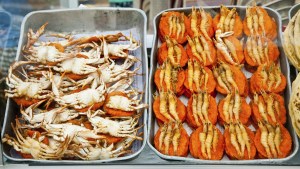Patrick Peebles in a refereed article in The Journal of Asian Studies, Vol. 49, No. 1 (Feb., 1990), pp. 30-55 …. which John De Silva in Melbourne, my Aloysian sporting mate, has worked on to make it feasible for me to present it in the Thuppahi format-style. The supporting Maps & Diagrams are presented via web-references, while the web-reference to the article as a whole is placed herein in pdf format.
Sri LANKA’S INABILITY to contain ethnic violence as it escalated from sporadic terrorism to mob violence to civil war in recent years has disheartened observers who had looked to the nation as a success story of social and political development. In retrospect, Sri Lanka lacked effective local institutions to integrate the society, and the Sinhalese elite relied on welfare and preferential policies for the Sinhalese majority to maintain power. These alienated the minorities and resulted in Tamil demands for a separate state. 1


Continue reading →
Like this:
Like Loading...

















